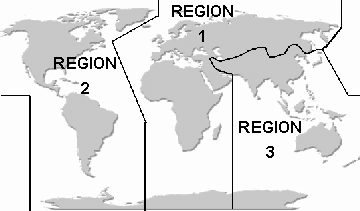

Let's be reminded of what CEPT stands for :-
European Conference of Postal and Telecommunications Administrations, which was established in 1959 by 19 countries.

1F1 Understand the requirements for operation by individual UK Licensees abroad under the CEPT recommendation T/R 61-01 and T/R 61-02
..... the Licensee shall :-
Operation abroad under the CEPT and a reciprocal licence is ONLY for those amateur who are visiting or as it is stated "temporary visitor".
CEPT Recommendation T/R 61-01 is the documentation under which from 1985 makes it possible for radio amateurs from CEPT countries to operate during short visits in other CEPT countries without obtaining an individual temporary licence from the visited CEPT country.
So if you are to emigrate to a new country, then the CEPT and reciprocal regulation do not apply and you would then need a call sign issued by the new country.
Understand this facility does not extend to club or reciprocal licences.
Note that the CEPT facility does not extend to club or reciprocal licences.
Understand the purpose and function of the CEPT Harmonised Amateur Radio Examination Certificate (HAREC).
Where the Licensee is authorised to operate abroad the Licensee shall:
So for instance in France you would use, if your call sign was G4AAA the following call sign F/G4AAA
Recall that many countries will offer reciprocal licences to UK amateurs with a HAREC Full licence and that operation is in accordance with the host country's rules.
(c) unless instructed otherwise by the host country, use the Callsign specified in Section 1 of this Licence after the appropriate host country Callsign prefix.
1F2 Identify the 3 ITU regions and recall that the frequencies are given in the ITU Radio Regulations.
When the Licensee operates the Radio Equipment on a Vessel in international waters, use of the radio spectrum shall continue to be made in accordance with Schedule 1, except that the Licensee shall use only those frequency bands which, in accordance with the Radio Regulations, have an allocation to the amateur service in the International Telecommunication Union (ITU) region being visited.
You have to have a working knowledge of the three regions in so far as if a country is picked out in an exam you would know in which region is was located.

The map above shows the approximate boundaries between the 3 ITU regions.
The frequencies that you may use are those which are allocated to the amateur service in the International Telecommunication Union (ITU) radio regulations and so long as they are also available to you in your licence document.
More about Maritime Mobile operation.
where this Licence is a Full Licence only, from a Maritime Mobile location, "Maritime Mobile" means the Radio Equipment is located on any Vessel at Sea.
With the Advanced licence you will be able to operate Maritime mobile and can use the suffix /MM when on a vessel at sea. Note that on inland waters you are /M (mobile)
Close down
When operating the Radio Equipment from a Maritime Mobile location, the Licensee shall cease to operate the Radio Equipment on the demand of the Vessel's master.
Quite obvious this one that if you are told to stop operating then you must cease else you may put at risk the safety of the ship. This could be for a number of reasons :-
Interference with ship's radio
Interference with ship's radar
Interference with ship's electrical / electronic systems
or just because the master is fed up with you having fun !!!!
Optional suffix "/MM" to call sign
If the Licensee operates the Radio Equipment from a Maritime Mobile location, the Licensee may use the suffix "/MM" with the Callsign.
The /MM indicates maritime mobile in the same way as /M indicates mobile.
Before operating the Radio Equipment on a Vessel, the Licensee shall install, use or make changes to the Radio Equipment only with the written permission of the Vessel's Master.
From the interpretation section the following is to be noted:-
"Vessel" means any other floating structure which is capable of being manned.
If you are to operate amateur radio on board any sea going ship big or small, the ship's master must know of the existence of your amateur installation (including hand-helds) and be able to require silence.>
To avoid any doubt permission to operate an amateur radio transmitter, or to change an installation must be IN WRITING from the vessel's master.
Radio Silence
Whilst operating the Radio Equipment on a Vessel, the Licensee shall observe radio silence on the advice of the Vessel's Master.
You must also understand that there are specific times when Radio Silence must be observed. This is to allow for distress calls, or distress beacons to be more easily heard on what ever frequency they are being made.
When operating the Radio Equipment from a Vessel, the Licensee shall, at the request of the Vessel's master, keep a log of such matters concerning the operation of the Radio Equipment as the master may require.
The origin of some of the text on this page is from the RSGB with additions by the web master